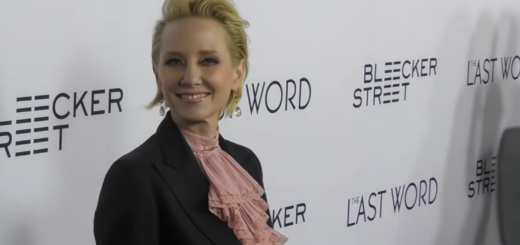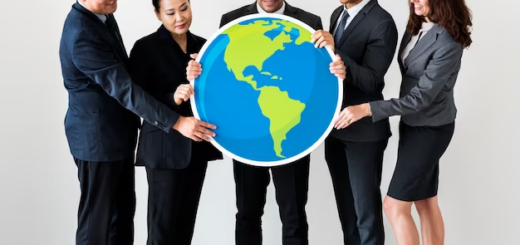How to Become a Diplomat: A Guide

Embarking on a career as a diplomat is a journey that combines international relations, cultural understanding, negotiation skills, and a passion for diplomacy. Whether you aspire to represent your country on the global stage or foster peaceful relations between nations, the road to becoming a diplomat requires dedication and strategic planning.
Understanding the Role of a Diplomat
Becoming a diplomat involves much more than just attending diplomatic receptions. Diplomats serve as official representatives of their country, working to safeguard national interests, negotiate agreements, and maintain peaceful relationships with other nations.
Educational Prerequisites
To embark on this journey, you typically need a solid educational foundation. A bachelor’s degree in international relations, political science, law, or a related field is a common starting point. Many diplomats also pursue advanced degrees to enhance their expertise.
Mastering Foreign Languages
Fluency in multiple languages is a hallmark of effective diplomats. Learning languages spoken in regions of strategic importance can give you a distinct advantage. Bilingual or multilingual diplomats can more easily build bridges and foster understanding.
Gaining Cultural Competence
Cultural sensitivity and adaptability are vital for diplomats. Understanding customs, traditions, and societal norms of different countries helps diplomats navigate complex negotiations and avoid cultural misunderstandings.
Developing Negotiation Skills
Successful diplomats are adept negotiators. They mediate conflicts, facilitate agreements, and find common ground among parties with differing viewpoints. Strong communication and persuasion skills are essential in this role.
Pursuing Diplomatic Training
Formal diplomatic training programs offered by governments or international organizations provide insights into protocol, international law, and diplomatic etiquette. These programs prepare aspiring diplomats for the challenges of the role.
Navigating the Foreign Service Exam
Many countries require aspiring diplomats to pass a competitive foreign service exam. This rigorous test assesses your knowledge of international affairs, current events, and analytical skills. Preparation is key to success.
Climbing the Diplomatic Ladder
Starting as a junior diplomat, you’ll gradually take on more responsibilities and complex assignments. Hard work, dedication, and a solid track record of successful negotiations can propel you up the ranks of the diplomatic corps.
Specializing in Areas of Interest
As your career progresses, you might choose to specialize in specific areas such as disarmament, human rights, economic development, or climate change. Specialization allows you to make a significant impact in a particular field.

Building a Network of Connections
Diplomacy is built on relationships. Engage in networking events, international conferences, and cultural exchanges to expand your connections. Building a strong network can open doors to opportunities and collaborations.
Embracing Technological Diplomacy
In the digital age, diplomats are also navigating the realm of technology. Technological diplomacy involves leveraging digital tools, social media, and virtual platforms to engage with international counterparts, share information, and address global challenges. Embracing digital communication enhances the reach and impact of diplomatic efforts.
Addressing Global Challenges: Climate Diplomacy
In an increasingly interconnected world, diplomats are at the forefront of addressing pressing global challenges, such as climate change. Climate diplomacy involves negotiating international agreements, fostering cooperation, and advocating for sustainable practices. Diplomats collaborate to develop strategies that mitigate the impacts of climate change and promote environmental stewardship.
Key Skills Every Diplomat Must Possess
Becoming a successful diplomat requires a unique set of skills that enable effective communication, negotiation, and representation. Here are some essential skills:
- Cross-Cultural Communication: Diplomats need to communicate across cultural boundaries with sensitivity and respect;
- Problem-Solving: Finding creative solutions to complex international issues is a core skill in diplomacy;
- Adaptability: Diplomats often work in diverse environments and must quickly adapt to new situations;
- Research and Analysis: Thorough research and analysis help diplomats understand the political, economic, and social dynamics of different countries;
- Public Speaking: Diplomats address audiences ranging from small groups to international forums, requiring strong public speaking skills.
Diplomatic Strategies: A Comparison Table
Here’s a comparison table of different diplomatic strategies:
| Strategy | Description | Advantages | Challenges |
|---|---|---|---|
| Multilateral Diplomacy | Involves multiple parties in negotiations or agreements. | Promotes collective solutions | Coordination among diverse participants |
| Bilateral Diplomacy | Involves negotiations between two parties. | Fosters focused discussions | Limited perspectives |
| Track II Diplomacy | Involves unofficial, informal talks for conflict resolution | Encourages open dialogue | May lack formal commitment |
| Economic Diplomacy | Uses economic incentives for achieving diplomatic goals. | Enhances trade and cooperation | Can be perceived as exploitative |
Diplomats in Action: Real-Life Examples
Diplomats have played crucial roles in shaping history. Here are two notable examples:
- Henry Kissinger: The former U.S. Secretary of State, Kissinger, was a key figure in diplomatic negotiations during the Cold War, including the opening of relations with China;
- Madeleine Albright: The first female U.S. Secretary of State, Albright, worked on diplomatic efforts to end the Balkans conflict and promote democracy.
Ethical Dilemmas in Diplomacy
Diplomats often encounter ethical challenges. Consider these scenarios:
- Human Rights vs. National Interest: Balancing human rights advocacy with national interests can be complex;
- Transparency vs. Confidentiality: Diplomats must decide when to prioritize transparency and when to maintain confidentiality.

Conclusion
Becoming a diplomat is a multifaceted journey that demands intellectual curiosity, cultural awareness, and a commitment to global cooperation. From educational preparation to mastering negotiation skills, every step contributes to your success as a diplomat.
Frequently Asked Questions
To become a diplomat, you generally need a bachelor’s degree in international relations, political science, law, or a related field. Advanced degrees and language proficiency are often advantageous.
Preparing for the foreign service exam involves staying updated on international affairs, practicing analytical thinking, and taking sample exams. Joining study groups and seeking guidance can also help.
While age requirements vary by country, most countries have upper age limits for entering the foreign service. It’s advisable to research the specific requirements of the country you’re interested in.
Cultural competence is crucial in diplomacy as it helps diplomats navigate different customs, traditions, and social norms. This understanding fosters effective communication and relationship-building.
Yes, as your diplomatic career progresses, you can specialize in areas like human rights, environmental issues, conflict resolution, or trade. Specialization allows you to focus on causes you’re passionate about.


